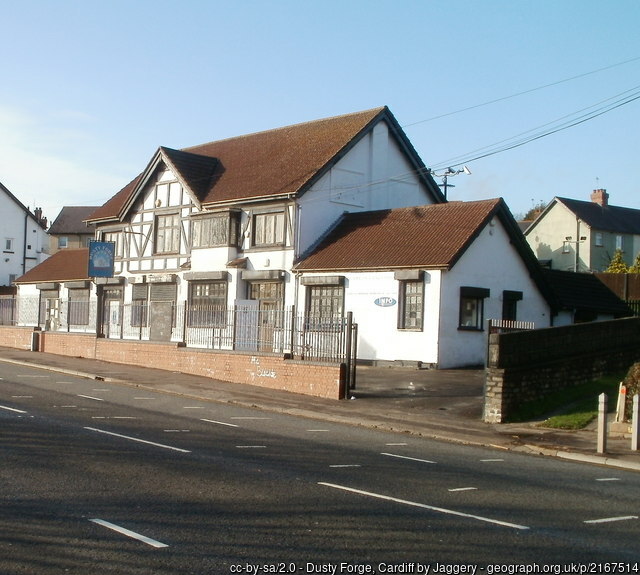Sophie Gilliat-Ray looks back at the life of Wales best known Imam, Sheikh Saeed Ismail
Over five decades of service in Cardiff Sheikh Saeed Ismail, who died aged in March 2011 aged 81, became the best known Imam in Wales, and indeed an iconic figure in the history of Islam in Britain.
Sheikh Saeed was born in South Shields in 1930, to a Yemeni seafaring father and an English mother (who converted to Islam). His father was killed when his ship was torpedoed by a German submarine in the Bristol Channel at the opening of World War II. Shortly afterwards, the spiritual leader of the Yemeni community in Cardiff at the time, Sheikh Hassan Ismail, was told about the nine-year old fatherless boy while visiting the Yemenis living in South Shields. Having met him, he recognised the piety and good character of the young boy, and asked his mother if he could bring him back to Cardiff, to teach him about Islam. Initially reluctant, she eventually agreed, and the young Sheikh Saeed arrived in Cardiff in 1940.
Educated in Cardiff through his early teenage years, he then went with his foster father to Yemen at the age of 16 to receive his religious training and education, returning back to Cardiff in 1950. But when his foster father, Sheikh Hasan Ismail, returned to Yemen on a permanent basis in 1956, Sheikh Saeed assumed spiritual leadership of the community. He continued to act as its figurehead for the rest of his life, despite poor health in his later years.
Throughout his working life, Sheikh Saeed combined night-shift factory work as a welder, with his religious duties during the day. He never received any payment for his work in the mosque, reflecting the spirit of self-sacrifice and dedication with which he served the Muslim community of Cardiff over more than five decades. Many Muslims in Cardiff will remember him very warmly not only as their religious teacher, but as the person who conducted their marriages, buried their dead, taught their children how to read the Qur’an, healed their disputes, and acted as their advocate and guide.
But alongside his religious role, he was a well-known local figurehead in civil society, and was the first Welsh Muslim to serve as a chaplain to a civic leader, this being Paddy Kitson, former Chairman of South Glamorgan County Council.
Under Sheikh Saeed’s leadership, the South Wales Islamic Centre was constructed on Alice Street in Butetown in 1984, and is one of the few purpose-built mosques in Cardiff. Its location and architecture means that it has always been a popular place for school groups and visitors from all sections of society, and Sheikh Saeed’s lilting Geordie/Cardiff accent, warm welcome, and easy-going demeanour will no doubt be fondly remembered by many.
Because of the longevity of his leadership, and his link to one of the most important and formative periods in the history of Muslim settlement in Britain, Sheikh Saeed has been interviewed and profiled extensively over the years, in academic studies, and in the media. But despite his prominence and significance, he nevertheless continued to exhibit the Islamic virtues of humility and generosity to all.
In a series of interviews conducted in 2009, Sheikh Saeed reflected on his life, his faith, and on his long memories of living in Cardiff. His accounts ranged across his love of Wales and his enjoyment of a “Sunday dinner, potatoes and cabbage” through to his regard for the religious knowledge of the scholars he met in the Yemen as a young man. Across the twists and turns of his life his Islamic faith remained central. In many ways, his whole philosophy of life is summed up in the following interview extract:
“Thanks to God I am a good Muslim, or I try to be, with the best of my ability. And I don’t want anything else. That’s good enough for me. Riches, it comes and goes. Health? Comes and goes. But faith, it’s not easy to obtain, not easy to obtain, but once you’ve got it, you’ve got to make it stay there. And faith is here in the heart”.
Sheikh Saeed is survived by his wife and three children (two daughters and a son), and eight grandchildren. His passing marks the loss of a major figure in the history of Muslims in Wales, and in Britain as a whole. Hundreds of mourners attended his funeral in Cardiff earlier this year. The funeral prayers were read four times in order to accommodate the number of people who wished to attend.
Dr Sophie Gilliat-Ray is Director of the Centre for the Study of Islam in the UK in the School of Archaeology, History and Religion at Cardiff University.






Late Sheikh Sayeed Ismail, known as Sheikh Sayeed in our community, was indeed an iconic figure in the history of Wales. During his life time, I had the opportunity of meeting him on several occasions. I had the deepest respect for him. He was extremely open and straightforward in dealing with the outside world. His personality impressed me so much I can’t possibly describe my feelings adequately. Sheikh Sayeed performed two of my daughters’ weddings in Cardiff. I felt humbled to invite him in my house for religious occasions. I always pray to Almighty Allah for his soul and to allocate a place in the Paradise. I admired him so much as a nice person and he did so much for the community. We all miss him a lot.